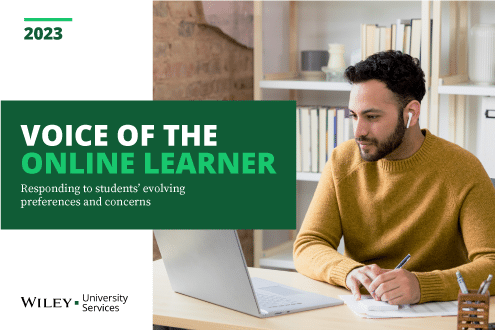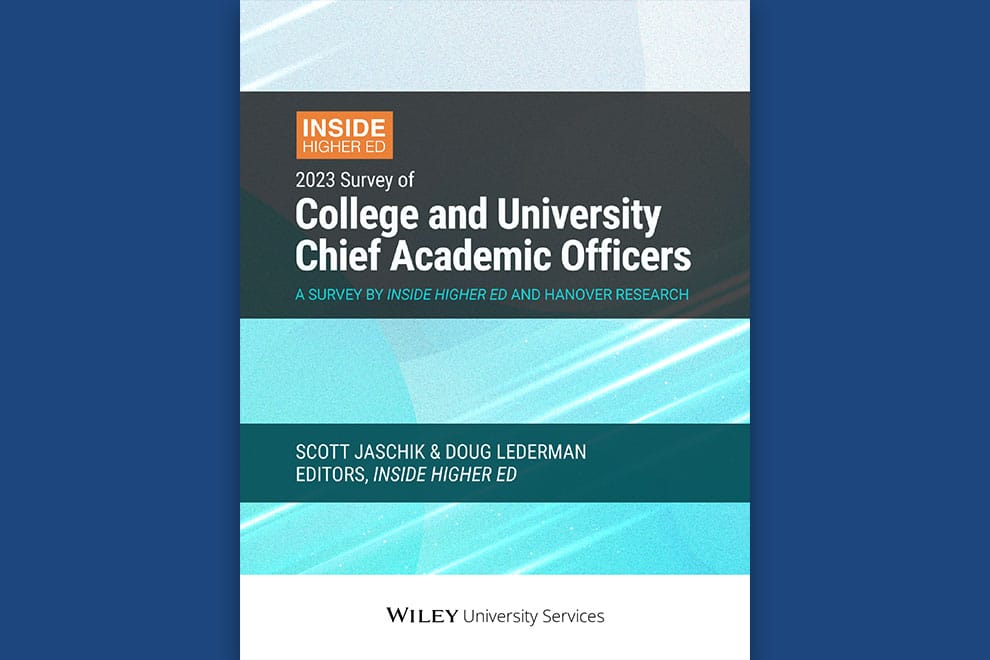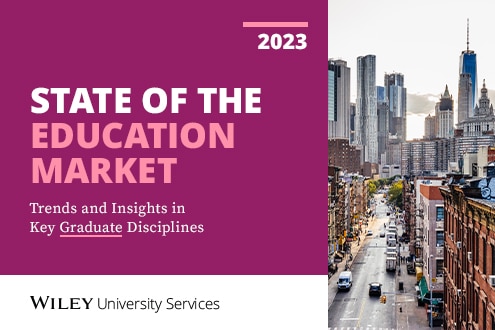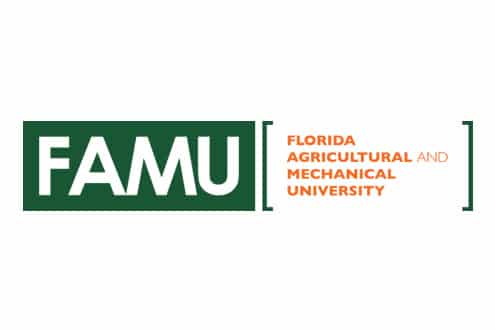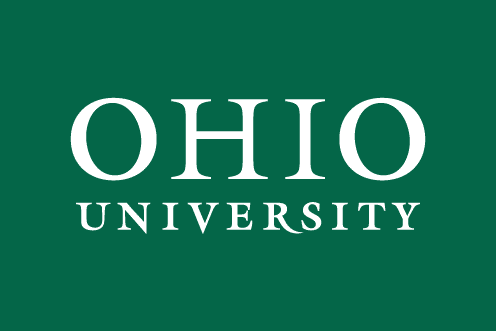Audio:
You’re listening to An Educated Guest, a podcast that brings together great minds in higher ed to delve deeper into the innovations and trends guiding the future of education and careers. Hosted by the executive vice president and GM of Wiley University Services and Talent Development, Todd Zipper.
Todd Zipper:
Hello, I’m Todd Zipper, host of An Educated Guest. On today’s show, I speak with Sean Gallagher, founder and executive director of Northeastern University’s Center for the Future of Higher Education and Talent Strategy. Sean is a naturally recognized expert with nearly 20 years of experience in higher education. At Northeastern, Sean works with colleges to launch growth initiatives, including the development of new campuses and degree programs. The key takeaways from today.
Todd Zipper:
First, why education is in a transition period and how innovations helped to evolve the model. Second, the value chain of higher education and how it has gone from vertically integrated to a horizontal model where learners can access content from many different providers. Third, the goals of employers who are creating their own credentials and training programs and how they could work with universities in the future.
Todd Zipper:
And lastly, how the shift in employers’ requirements for applicants can cause universities to evolve and change their content. Hello, Sean, and thank you for being here today on An Educated Guest.
Sean Gallagher:
It’s great to be here. Thanks for having me.
Todd Zipper:
Let’s start by having you tell us about both Northeastern University and the Center for the Future of Higher Education and Talent Strategy, which you currently run. I’ve always been so impressed with Northeastern and its unique co-op program, which combines learning and earning or full-time work in one continuous way. Perhaps start with Northeastern and then go into what the center does and how it fulfills the university’s mission.
Sean Gallagher:
Sure. Northeastern is a private research university. It’s about 125 years old. It’s headquartered, I guess, you could say in Boston, Massachusetts in terms of its history. But over the last decade or so, we’ve really branched out and established more of a global network with a series of campuses in spots around the world that are all integrated and basically are all in service of this vision of global experiential learning.
Sean Gallagher:
That’s really one of the core parts of Northeastern that’s unique and its place in the higher education community is the focus on experiential learning.
Todd Zipper:
Can you say a couple more things about experiential learning? I don’t want to assume anything.
Sean Gallagher:
Experiential learning can be thought of as a real continuum when we think about classroom-based learning and also experiences in the world. It could include study abroad, various work experiences, cooperative education has been a historical anchor at Northeastern, internships, capstones, online projects, and in some cases, apprenticeships around the world, that’s sometimes referred to as work integrated learning.
Sean Gallagher:
There’s many different terms, but it’s a way of blending practice and application and feedback embedded in the real world of work while also having a traditional educational model.
Todd Zipper:
I know that’s a good segue with what you’re doing at the Center for the Future of Higher Education and Talent Strategy, because you are bringing the voice of the employer to bear. Can you tell us about the research that your organization does and the core themes that you wrap it in?
Sean Gallagher:
Yeah, the center’s work really extends from Northeastern’s heritage and market position. We focus on studying the intersection of the world of work and post-secondary learning. The goal is really to impact the marketplace by enabling the development of new models that integrate and eliminate the gap between work and learning. Everything that happens at that intersection.
Sean Gallagher:
And I’d point out not just this idea of college students going off into the world of work as graduates at the end of a pipeline, but also the learning that’s happening in the workplace, what’s happening with experience talent and the hiring process and adult learners and how online credentials are viewed.
Sean Gallagher:
All those sorts of themes and topics are issues that sit at that intersection where we’re really trying to help stakeholders in the post-secondary education ecosystem understand what’s happening in the world of employment, especially as it concerns employers’ behaviors, their attitudes, their strategies, and their business models.
Sean Gallagher:
It’s not just looking at labor market data or thinking about innovative program approaches, but rather studying and digging in deep on what it is employers are doing and what that means in terms of how the system has to adapt and how we can grow the market.
Todd Zipper:
Excellent. I read a great quote from you recently that said, “This is education’s Netflix moment.” I think you’re referring to some of the decrease in on-campus enrollments that we’re experiencing, not only due to COVID, but also due to the birth declines. How can higher ed adapt and perhaps accept the fact that the traditional on-campus enrollments are changing and that there’s kind of a new world we’re all experiencing today?
Sean Gallagher:
Yeah. We’re in this world of platforms and of digitization and it’s still very early, but I think what’s changed is that there are some new distribution channels. I think about what happened in the world of recorded music or, as you refer to with Netflix, various types of media and movies and shows. It’s remarkable if you look back at the last 20 or 30 years and what we had with everything from America Online and CompuServe to the rise of Google and now these different platforms that exist.
Sean Gallagher:
Higher education is in the middle of one of those trend transitions where it’s being distributed in new ways. Online learning or rather online degrees have been around for about 25 years, but it’s still a market that’s growing at a high rate and it’s still something that most people haven’t necessarily experienced, but it’s becoming much, much more common. With a lot of these innovations and new models, it’s a multi-decade cycle of adoption. Some of that is certainly speeding up due to the pandemic, but much of it is slow and steady change.
Todd Zipper:
We throw around a name like the Netflix or some of the other leading technology platforms that have disrupted other industries. Google, which has, I think, 90% market share. Facebook and its Meta name has probably a similar market share. We’ve got Microsoft. We’ve got Apple. These are trillions of dollar company. These are industries that they’re disrupting. Is it possible? This was a good question I was going to ask you a little bit later, but I’m going to jump right in.
Todd Zipper:
Education or higher education has its own emerging direct to learner platforms that have gotten a lot of attention in the media. Many of them have gone public now. We’re talking about Udemy. We’re talking about Coursera. We’re talking about edX, which was recently acquired by 2U. They’re is also LinkedIn Learning, which is a huge platform acquired many years ago by LinkedIn, which, of course, is now owned by Microsoft. Is it possible?
Todd Zipper:
How are you thinking about those platforms and potentially being part of this higher education ecosystem?
Sean Gallagher:
In professional learning and direct to consumer education, I think these various companies and platforms are definitely gaining market share, and they are disintermediating universities and colleges in certain cases. I’m not sure that’s happening overall in terms of the different jobs that a college degree does or the value proposition that it has, the role it has in society and in employers hiring process, and all of that.
Sean Gallagher:
But when you think about professional learning and lifelong learning and the fact that that is something that people either want to engage in, or it’s simply required to get ahead or stay ahead in the job market, that is a space where either universities will be providing more content, or we’re going to see these third parties, if you will, for profit companies, in some cases, become the content providers.
Sean Gallagher:
One way to think about this, which I got many years ago from our president Joseph Aoun, is the value chain of higher education and the idea that historically it’s been vertically integrated, right? The universities and the professors are designing the content and they’re writing the textbooks and they’re delivering it. They handle all the pieces much like automobile companies years and years ago owned the whole supply chain. They built the chassis and the engine and the electronics and so on.
Sean Gallagher:
Instead, it’s more of a best of breed model where it’s more horizontal. And now you have the beginnings of you can learn and access content, excellent world class content, from many different providers. It doesn’t necessarily have to come from a university or a professor. And then you can get that assessed somewhere else. You can get the competencies that you’ve gained evaluated. Maybe there’s another party that will award the credential in this whole value chain.
Sean Gallagher:
There’s this early beginnings of a disconnect between the content and the instruction and the assessment and the awarding of the credential. There are some examples like that today where you can get an industry certification from a third party of some sort that’s not an accredited institution, and then maybe a college will assess that knowledge, and then maybe you still get a degree or a certificate from some other institution entirely, or you transfer the credits.
Sean Gallagher:
Education doesn’t work that way in the United States in terms of having a really fluid open marketplace. But as more of this goes online and goes digital and we start to have some standards where you can exchange data and information and whoever’s evaluating it can dig in, I think we’ll see more of that happen in the future.
Todd Zipper:
I want to jump into employers role, which I know you study a lot in the higher ed ecosystem. We know more and more employers are doing their own training programs and awarding credentials that way. We’ve seen it with Google. Salesforce is out there. I know we’ve got Amazon, Microsoft, IBM. Can you tell us a little bit about what these programs are?
Todd Zipper:
Why have these big companies come out there and design these programs essentially for free is my understanding, to give this content and this training away for free to what seems like opening up access, closing the skill gap? What are they hoping to attain? Where do you see this trend right now, it seems like it’s very early, and the impact that it’s making own society?
Sean Gallagher:
It is a major and important trend, and it’s been around for a while if you think about the IT certifications that appeared in the late 1990s and the 2000s with the dot com boom. Microsoft and Cisco and Novell, many of them still have major businesses as education providers, so it’s actually part of their business where they advance their ecosystem or they build their brand.
Sean Gallagher:
I think there are similar motivations here with some of the new providers, newer entrants, like Google and IBM, Salesforce, HubSpot, and countless others. It certainly is, as those examples speak to more in the tech field or in the tech industry, which is both very competency driven in terms of how they hire, but also has just a massive skill shortage, which is the other thing. That’s where so many of the jobs are and where people need to be upskilled and where there isn’t enough talent.
Sean Gallagher:
It’s part of this push to develop new pipelines beyond colleges and universities or beyond professionals associations and other ways that people can get these skills. I think some of these firms, they maybe don’t always want to be in the education business, but they want to contribute. It helps their brand. It helps grow their industry, and they hire many of the graduates of these certificate and certification programs and other types of credentialing programs.
Sean Gallagher:
I’d point out, there’s a lot of confusion about what’s a certification. There’s a hundred different types of certificate you could get. Are they evaluated for academic credit? It really depends on what you’re looking at, and I think the consumer needs to be very careful. But at the same time, there’s a lot of value, and a lot of employers have committed to hiring graduates of these new programs. It’s something we’re really actively studying.
Sean Gallagher:
We have some working groups with some of those employers and we’re trying to dig in and better understand employer’s receptivity to hiring people that have credentials from maybe their competitor or especially college’s ability to, as we’ve done it Northeastern, in some cases with IBM and Google, recognize these certificates and programs for academic credit as a pathway into a degree program. I think that’s happening most at community colleges.
Sean Gallagher:
We actually did a journal volume published about a year ago in a Wiley Publication where we were looking at community colleges starting to weave various certifications and tech vendor offerings into their curriculum. It’s back to that same idea we just talked about where the university or the professor doesn’t always need to be the developer of some of this content or curriculum, but they can leverage it and they can weave it into and add value to what it is that they’re delivering.
Sean Gallagher:
I do think that’s something we’ll see more of, but there’s also a bit of pushback potentially from some circles where they see it as this kind of corporate encroachment into the world of education.
Todd Zipper:
Yeah, I’m trying to make sense of how much of this is competition or supplement. “Don’t go down the traditional degree path. You can come here for this specific type of job ready training, and then you can get your job,” versus something that is part of the university experience, like you mentioned. What is often called stackable credentials or certificates where you can bring certain things together, whether they’re inside of a university or outside, but the university can help sort of stack it into a curated form.
Todd Zipper:
Can you talk a little bit more about the university’s role in all of this going forward with the Googles of the world producing this free content around really important training?
Sean Gallagher:
Most of the activity I’d argue is very supplemental. It’s not supplanting education providers and a lot of these major tech firms and others. I would note there are financial companies, retailers, manufacturers that we’ve talked and worked with who are looking to issue their own credentials. It will go beyond technology occupations, but I don’t think they want to disrupt colleges and universities in the way that we hear that narrative.
Sean Gallagher:
Now, sure, that’s happening at the margin in some cases, but I don’t think it’s the goal of these entities to stamp out colleges. They’re actually much more focused on partnering with them and working with them again to build out the talent base in these fields that really need it, right? As we record this podcast, there’s this record level of job openings. There are major supply chain challenges, and we’re just living in a very complicated world.
Sean Gallagher:
We need new solutions, and we need more providers and more creative types of partnerships to solve some of these challenges rather than just assume people are going to be able to stop out of their working life or take out a loan and pursue a college degree or even a coding bootcamp or something else. All that will, of course, still happen in very large numbers, but it’s about the development of some new and some interesting options.
Todd Zipper:
It still seems like the university degree remains a priority when hiring talent for employers. However, many of these companies are not now requiring a degree for certain open positions. These are getting headline attention. Do you have a sense of how big this market is? I know and I’ll just quote one of the stats from one of your recent surveys that really popped out, that it said 34% of HR leaders indicated their organization uses hiring strategies with a lens on competencies over college degrees.
Todd Zipper:
That was pretty powerful, right? That’s a shift. It’s not 74%, but it’s 34%. Can you just talk a little bit about where you see this ecosystem going between degrees and this other non-degree category?
Sean Gallagher:
Yeah. We’re at least five years into this trend toward skills-based or competency-based hiring, which doesn’t necessarily mean that employers are throwing out degrees, but that they’re being more intentional about how they develop job descriptions and how they set their preferences and requirements for talent. That’s actually the focus of my dissertation and part of what got the center launched ultimately was some work in this area.
Sean Gallagher:
I think we often assume in the education world that these major employers have this down to a science and they’re using a lot of data and that there’s a lot of rigor in how they think about requiring let’s say a master’s degree or an MBA for a certain role, or preferring someone from a certain type of college with a certain level of selectivity.
Sean Gallagher:
But in fact, when you look at it, the HR function and employers and just how they approach this and how complicated it can often be have really been behind in applying data to the process and being able to justify and measure different things related to skills and competencies. As technology marches along and gets applied to the HR and the talent function in the same way that we’ve seen it in marketing and finance and other areas of business, it’s now getting to refine that process.
Sean Gallagher:
Now, the other thing that’s happened in addition to just kind of optimizing how that works within companies is a couple things. There’s the skills and talent shortage that’s been going on. When you can’t find enough college graduates, if that’s historically been what you’ve looked for, you need to begin to expand your pool and start thinking about, do we really need a college degree associated with this role, or can we look elsewhere?
Sean Gallagher:
If we’re not going to rely on a college degree as maybe a signal of someone’s ability to learn or skills that they might have, what are the other ways that we could do it? We could do a pre-hire assessment and increasingly you can do that online. You can take new approaches to interviewing and so on. And then the additional angle, which got particularly amplified in 2020, is the equity dynamic and just the fact that many companies are looking to diversify their talent base.
Sean Gallagher:
They’re looking to tap into new pools of talent and maybe people who have been excluded or have not had as much access to college education. Those things have kind of come together to create this real trend where there’s this momentum and, in fact, very significant statements from many CEOs and so on where they’re moving towards skill-based hiring. To come around full circle, we got some of the first data trying to understand what was the prevalence of that back in 2018.
Sean Gallagher:
It was about a quarter of employers who said that they were either doing that already or moving in that direction. In this most recent survey, it was up to, I think, close to 35%. It’s very significant growth. But of course, I tend to point out that it doesn’t mean that these employers are throwing out degrees, but it’s that they’re getting more rigorous and more open in terms of how they think about what a college degree means when they hire.
Todd Zipper:
Sean, do you think this has many market forces, potentially a correcting mechanism around the cost, right? As the employers continue to go more towards this skill-based competency and they’re willing to look at things other than a college degree, will that put pressure on the college degree to evolve, to maybe get shorter, right? That’s a thing that people are looking for. More affordable and more practical. I mean, do you see that happening, or do you see it generally still looking like it does today?
Sean Gallagher:
I’m glad you asked that. I think that will happen and it is slowly happening. In the world of higher ed right now and educational innovation, if you will, a lot of the attention has been on these new shiny objects, some of which are important and promising and great, whether it’s digital badges or competency-based education, online degrees, all these things that have come along that represent an evolution or something new that could maybe deliver more value.
Sean Gallagher:
The degrees in the products that we have, where you have hundreds of billions of dollars in spending around, tens of millions of enrollments, and that’s not even beginning to count the online and casual learners and professional learners that aren’t captured in some of those official statistics. There’s a massive market still. Even though it’s declined a bit, a massive market for what we might call traditional college and university education, both in the US and also around the world.
Sean Gallagher:
But there’s an opportunity to deliver greater value, to have higher ROI, lower costs, more ideal outcomes, greater employability, all those things, as it relates to the degrees that we do have. And maybe the pandemic and the way that it’s reset a lot of what’s happening in the higher ed market is this opportunity to get there.
Todd Zipper:
I know one of the great things about our system, for better or for worse, is the signaling that if you get a degree from an accredited institution, a bachelor’s, a master’s, especially if you know the name of the institution, it signals something to the employer market. But as you mentioned, that’s changing and now we have a lot of innovation happening in this credentialing market. But it still feels a bit like the Wild West, right? In terms of, what are the standards?
Todd Zipper:
What are the policy around this? Can you get federal funding to fund your program? I recently saw that UNESCO has convened an effort to move toward a common language around these micro-credentials. Can you talk a little bit more about this of how you see this evolving, the standardization of credentials beyond the degree?
Sean Gallagher:
Yes. With the history of degrees, when you look back, this is how we got accreditation in the United States, which is largely a US-based kind of approach. We have a lot more private instant institutions and more institutions in many other countries where they tend to have publicly funded and publicly based systems. But in any event, about a hundred years ago, these groups of institutions came together and they said, “You know what?
Sean Gallagher:
Our degrees are all a little bit different, where we’re going to have graduate degrees coming in like the European model into the United States and we’re going do that now. We need to standardize and make sure that we can all have these things mean the same thing out in the marketplace.” And that’s how regional accreditation arose in part.
Sean Gallagher:
But with new types of credentials, and I’d underscore that most colleges and universities have long offered certificates for decades upon decades and you can get certificates and other sorts of credentials online, in-person, through executive education, part-time, full-time, all kinds of different forms, but then these new constructs came along and some colleges and universities, I think, it slowed down a little bit and certainly some of the third party providers.
Sean Gallagher:
These grade mark terms, Nanodegree, MicroMasters, and so on, microdegree. There’s all these new types of credentials that are basically being marketed, but there is no standardized approach really in terms of what some of these mean or what they include, at least when you think about it from almost like a regulatory respective.
Sean Gallagher:
Whether that’s voluntary or whether that’s government mandated, it’s really a bunch of colleges and other providers sort of doing what they like and, in some cases, harmonizing that with academic credit hours. To your point, there’s a bit of a Wild West going on. Now, other countries are taking a slightly different approach. But around the world, this is all still very early.
Sean Gallagher:
Different provinces in Canada or Australia or the EU or UNESCO, they’re trying to bring together various institutions and stakeholders and say, “Okay, here’s what a micro-credential is,” and that’s really the basket, the catchall category for a lot of these new types of credentials and certificates and badges and so on is micro-credentials.
Sean Gallagher:
They’re trying to define what is a micro-credential, what’s it entail, how long is it, to try to get more momentum for a standardized way of approaching it, rather than basically not being able to compare apples to apples, so that you have more transferability, and so employers know what it means, and so that the consumer can understand, what will this thing do for me, right? I’d like a job, or I want to master a certain skill or disciplinary domain. Do I do the degree?
Sean Gallagher:
Do I do a certificate? Should I get some sort of micro-credential? Should I just take a course? Does it not matter? Does it matter if it’s accredited or not? There are all these questions. What’s good is that people have, for the most part, been able to sort this out as these new offerings have appeared, but there’s a long way to go in terms of potential standardization.
Todd Zipper:
You mentioned Europe and it sort of ignited a thought for me around not an innovation per se, something that’s been around for centuries, is the apprenticeship, right? You even talked briefly about this with Northeastern. This is something that appears to be very underutilized in this country, but it connects learning and earning. Do you have any thoughts around that on why there’s a lot of support for it I think across the board, but doesn’t seem to have momentum?
Sean Gallagher:
Yeah. Apprenticeships are tricky and fascinating. I’m not an apprenticeship expert in the way that many people have focused their career on studying or building apprenticeships, but it is in that continuum of experiential learning that I talked about and certainly a category of interest in the educational policy world that I study. My sense is the energy for apprenticeships, especially the last six or seven years, arose out of this desire for alternatives to college degrees, which included micro-credentials, badges, coding bootcamps.
Sean Gallagher:
And interestingly, when you look back, as very opposite as the policies of these administrations were, the Obama administration and the Trump administration were arguably both aligned on trying to create more alternatives beyond the college degree and to try to encourage innovation.
Sean Gallagher:
Over the course of the last 10 years, regardless of who is president or what the policies were, you saw the business community, various state governors, the federal government, educators, in some sense, a lot of groups coming together and saying, “Look, we need more practical alternatives for skilled labor and for talent in certain areas. Let’s look at these other models to do it, rather than just community colleges or just on the job training and that sort of thing.”
Sean Gallagher:
My impression is when you look at the German and Austrian system, as really tends to be held up as the gold standard in terms of they’ve made apprenticeships work, it’s interwoven into their entire educational and economic and societal system and at a scale too that’s very different from the US. When we’ve taken looks at various apprenticeship programs, it’s very hard to find any that have more than let’s say a hundred or a few hundred apprentices in them.
Sean Gallagher:
If you think about that scaling up and then also consider what does it take for an employer to run an apprenticeship program or to be engaged in it, we’ve done some studies that are more focused on internships and those sorts of experiences. As anyone, probably most of the listeners have been in this position, you’ve had an intern. You’ve hired an intern. Maybe you’ve been engaged in an internship program at your company.
Sean Gallagher:
And if you do it well and you do it right, it can be a lot of work, and it can have an incredible return. Many companies will tell you, and they can measure that they get their best talent from the internship pipeline, but it takes work on the employer side. It’s not like we can wave a magic wand and say, “We’re going to have more apprentices.” We really need to build the infrastructure for that and the policies around it. I suppose also the incentives for it.
Sean Gallagher:
That’s one of the things we see with experiential learning generally is, again, if we go beyond the US and you look to Canada and some other places, there’s incentives for employers to hire interns or co-op students or apprentices that we might not have in certain cases in the US. You start to get into all the financing mechanisms and a whole bunch of layers, but it is an exciting area. I’d be curious to see how much the momentum continues through this changing job market.
Sean Gallagher:
And also, frankly, with all of this, the fact that as we record this, the last two years, we haven’t spent as much time in offices, or on the manufacturing shop floor, or wherever else that people work, and that’s made it much more challenging to have the kinds of hands-on experiences that apprenticeships and internships and mentoring are all built around.
Todd Zipper:
You mentioned how the two last administrations have been very supportive of these alternative credentials. About a decade or so ago, the coding bootcamp market sort of emerged. Oftentimes, it’s called the bootcamp market. It’s really focused around developing software engineers or programmers. Do you have a sense of kind of where we are with that?
Todd Zipper:
It seems like it’s a decent size industry, good outcomes, getting people placed in good jobs. But is it at a scale yet that’s really helping to close any of the skills gap? What is your thoughts around that model, for one?
Sean Gallagher:
It’s a great model. It looks like it’s continued to grow from the sources that I’ve looked at. I would place it on that spectrum of it’s something that universities and other providers have long done, even if they’re not accredited institutions. Due to the skill shortage in coding and analytics and other areas, you had this moment and you had the venture capital in some cases that fueled it as well, where all these providers sprung up to focus on that challenge.
Sean Gallagher:
The thing that I’ve found most fascinating and I actually talked about this in my book five years ago is universities partnering with bootcamp firms and adopting that type of approach themselves. Now it’s a both and. You have these independent coding schools and other entities, and you have some of the most selective and prestigious and also well-known and largest public colleges and universities that are offering their own bootcamps often in partnership with a third party provider, whether it’s a tech company, a publisher, those that are in this business.
Sean Gallagher:
The fact that it can be a different educational delivery format is I think what stands out. What I continue to be intrigued by is how universities and faculty think through, as we talked about with credentials, what are the pieces where they’re going to focus on it being their core competency versus it being a piece that they can outsource. Universities, what are they really in the business in in terms of the teaching mission? They design curriculum.
Sean Gallagher:
They have classroom space. Maybe they have online learning tools. They have the faculty who they hire. They do the assessment, right? That’s their business and that’s also the same pieces you would need. They also have brands too, by the way. If you were to start a coding school or some type of bootcamp, you would need to bring together all those elements and all those core competencies.
Sean Gallagher:
But for right now, the momentum really seems to be with a lot of these partnerships and with universities thinking about that as an extension of their market.
Todd Zipper:
Let’s talk quickly about COVID. It’s a topic I actually haven’t paid a lot of attention to from a higher ed perspective, because things have been back to normal now for at least six months or so. Universities really have done a spectacular job of keeping their institutions open, kid safe, and obviously utilizing online and accelerating what they were already doing online, but even more.
Todd Zipper:
We’re almost two years into this, where now certain college campuses are going remote, which they know how to do for January because we’ve got this new variant raging. Do you have any reflections just kind of two years in? Where are we? What has this done for good and bad around the higher ed system?
Sean Gallagher:
I think the world is going to look forever different in higher education and probably other areas of life too, of course, now that we’ve been through this transition. The pandemic has exposed a lot of players in higher ed, whether it’s faculty, senior administrators, traditional age students to some of the benefits of online learning, also some of the downsides or challenges when it’s not done right. I think we’re just in the very early innings of that now being woven into really how education is going to be delivered as a majority moving forward. Intentionality is really important and sound design.
Sean Gallagher:
What’s very tricky is thinking about or attempting to study or just extrapolating from, and I see this in the media and with a lot of different college leadership and policy leaders and so on, extrapolating that emergency experience of hastily designed online learning or remote learning as a stop gap that happened in the pandemic, versus when you have really strong instructional design and online learning with the right tools and with the right support and with faculty who are trained to do it well.
Sean Gallagher:
In fact, an interesting personal experience I had as someone who… As I think about it at this point, I’ve taught online. I’ve earned a degree online. I’ve studied online myself. My two sons went through 100% online virtual school. We decided, although they were in an excellent public school system, that once we were entering that real full year of the pandemic, that they might get a better experience at an institution that had something built in a fully online way and had the teachers and the technology to really do that versus how they were trying to cobble it together in the school where they were.
Sean Gallagher:
Now, I’m delighted that they’ve gone back into a regular classroom environment, which you need and want for that social development and the traditional experience and everything else. But when you do the online right, you can have some quality outcomes.
Todd Zipper:
I want to go back to what you talked about with competency-based education, one of the areas that you studied. I recently read an article about Western Governors University. So many universities are struggling right now. It’s kind of the Tale of Two Cities. Alternative credentials, digital offerings are doing great>. Some of the traditional schools and enrollments are not doing so great.
Todd Zipper:
And yet a school like WGU, which really prides itself and is the poster child for competency-based education, seems to be doing incredibly well. They talked about how they’ve built in industry certifications in technology into their bachelor’s of technology degrees. Do you have any reflections there on schools that have kind of leaned into a fully CBE type of model, because it seems like they’re quite unique out there as like a unicorn just pursuing this one strategy?
Sean Gallagher:
Yeah. In the grand scheme of American higher ed, I’d say competency-based education seems to fit best in the adult learning world, continuing education, lifelong learning, people completing degrees, earning degrees part-time, which is a very significant market and a place where I’ve focused a lot. If you want to gain credit or make progress for what you already know, or you’re doing it as a working adult learner, that can be a very effective model.
Sean Gallagher:
But if you’re 18 or 19 years old, or you’re someone who’s doing a career transition and you know nothing about nursing or health informatics, but that’s what you want to go into and you’ve been working in manufacturing, I’m not sure that competency-based education is always going to get you there or be able to get you there in terms of what that model does. I think it’s fantastic and that the world of higher ed overall, as it focuses often on being more practical and having stronger job market outcomes, is becoming and will become more competency oriented.
Sean Gallagher:
But that fully competency-based education program or institution is probably likely to be relatively rare. WGU has done a great job at capturing a large share of that market and growing at a very significant rate. I think we’ll see that creep into more and more programs, whether it’s master’s degrees, bachelor’s degrees, completion, certain types of certificate offerings. I know there’s various networks out there like CBEN and others that I think represent hundreds of institutions who are doing this or are interested in doing more with it.
Sean Gallagher:
I don’t know off the top of my head what the count is of the number of institutions that have a competency-based degree program, let’s say. It’s in the hundreds, if not the thousands.
Todd Zipper:
It seems like this has to be the direction of travel that we’re going if we’re going to be more career or skills-based oriented. Because to get through a program and not have mastery of the content or the course, I think it signals something wrong there for the employer. It’ll be interesting, because I don’t even think a consumer knows the difference, like you mentioned, capturing part of the market.
Todd Zipper:
I don’t think they know the difference of going to WGU’s CBE-based program or Arizona State University’s, these are two large online universities, non-CBE-based program. There’s probably a blending between the two. I’m sure there’s a CBE element to what ASU does. But since they probably time box a course, right? This is an eight week course. This is a 12 week course. You get through it and you go on to the next step. This is a trend that I’m following very closely.
Todd Zipper:
WGU is this unicorn that does competency-based programs, which to me and you, we actually understand what that means. The consumer, I don’t think they’re saying, “Ooh, I want to go to a CBE program versus a time-based program,” which I don’t even think our audience have… If we quiz them, they wouldn’t even know what that means. But the point is, you’re mastering a concept, right? That’s the way I understand it. If you can master it in four weeks, you go onto the next hurdle, right?
Todd Zipper:
It’s like getting a black belt in karate. You don’t just get it in a year or four years or 10 years. You have to kind of get through a system that somebody is entrusted in getting you through the different gates. It seems like a lot of our society is built on a competency-based model, whereas higher education is built on this time-based model. But that’s being broken today by both alternative credentials, which are very competency-based oriented, and some innovators like WGU. I’m just wrapping my head around where we’re going in the future with this.
Sean Gallagher:
What you said reminded me of the fact that at the end of a WGU experience or the Arizona State experience or any other one that you referenced, often the end product is a degree and it doesn’t have any special label that says, “Well, this is a competency-based degree, or this is an X degree,” or just make up a term. It is a university degree from an accredited institution and that there are already many different ways that you can get to that degree endpoint.
Sean Gallagher:
If you do a degree experientially, or if you stack together a bunch of micro-credentials, yes, there might have been very different parts and experiences in that, and it might have been very nontraditional and very innovative. But the end product that the person has as part of their identity or that the employer might look and so on typically is, hey, you have a bachelor’s now, regardless of the mode through which it was earned, in the same way that we’re finally in a place we’re earning degrees online.
Sean Gallagher:
I’ve been tracking that for 20 years. When online degrees started out and where the domain largely of for profit universities and many traditional school levels weren’t doing it, it was only 20 or 30% of hiring managers and HR leaders said that they would view an online degree as on par with a traditional degree. And then that went up into the 40, 50, 60% range. It’s at 63% acceptance prior to the pandemic.
Sean Gallagher:
We have a survey we’re about to release this week that shows that it accelerated further due to the pandemic specifically and it’s at 71%. A majority of corporate leaders are now accepting degrees earned online largely because they’ve sent employees into those programs. They’ve hired people from those programs. Many of them have gotten a degree online themselves. We see that in the open-ended responses.
Sean Gallagher:
It’s now something that is mainstream, but that took 25 years, but it’s all a degree versus having to dig into what was the form that it was in. The other thing about a competency-based institution or program, and it reminded me of an experiential learning program like at Northeastern or an institution that has that as its model, University of Waterloo in Canada is another one, for example, is often the institution’s culture and all of their systems and their rhythm and their calendar and the faculty that they hire need to be oriented around that innovative and different model.
Sean Gallagher:
That’s part of what makes it hard for other institutions to just start doing some of these things that are really quite different is it becomes hard to put into place all the right processes and people and have the culture and the ethos of students who are rotating in and out of the world of work. At Northeastern, for example, I believe there’s well over 100, perhaps 150 people who are supporting the employer relations and counseling the students on job placement and resume preparation and reflection and all of that, and that’s what it takes to do experiential learning at scale in the case of one institution.
Sean Gallagher:
So maybe you could do that at another university on a program by program basis, or in the case where you start an institution from scratch with a new model, like Minerva, let’s say. But otherwise, it can be hard to get an institution as a whole to operate in some of these new models.
Todd Zipper:
What other innovations in higher ed are you seeing that have your attention today?
Sean Gallagher:
That’s a great question. Unfortunately, the last two years with the pandemic, it seems there’s been this appropriate focus on just what’s happening in the present and getting some of our existing models to work and keep colleges open. It feels like some of the innovation and excitement has slowed down a bit because there’s other things that needed to be attended to. But as we discussed, the general shift toward online models and digital learning, I think, is very, very significant.
Sean Gallagher:
The real opportunity, and there are some research literature that suggests this can be really the ideal model, is blending and hybrid learning done in a well-designed intentional way. We’re seeing it, I think, even at institutions who have institutions and bases of students who have no desire to go back to remote learning, but they are interested now in maybe flipping the classroom and focusing more on discussion and the convenience of having a lecture streamed to them online from their dorm room and everything in between.
Sean Gallagher:
I think over the next five to 10 years, we’re going to see this development of a much more blended and hybrid learning. I wrote about an article a few years back. I see others are talking in these terms now too as omnichannel learning. If I order some something from Target, I can pick it up at the store. I can go. I can have that experience, but I can also do it online. And that’s also, of course, true of all kinds of services that we access as consumers in certain ways.
Sean Gallagher:
I know some of them it’s hard to compare to the educational process, but we’re living in a more omnichannel world and our universities are going to be much more online. That doesn’t mean that everything’s going to be online and that we’re not going to have in-person, but there will be a very significant blending. There’s just much more work to do to be able to do that right, to be able to train faculty, even in how we frame these things.
Sean Gallagher:
And having prospective students, current students, parents, policymakers, everyone who’s not an educational expert understand what is it that we mean by this model and what are the benefits of it, or when is it not the right fit for you, because it’s something new versus the idea that, okay, education is we go off into a classroom and we do some paperwork, and then we graduate and we hang a piece of paper on the wall. All of those pieces are now much more digitally infused.
Todd Zipper:
Yeah. I mean, I don’t think anybody can hide behind this just can’t be done online and leave it at that, given what has happened the last two years where pretty much everything went online. Plus, there’s new technology emerging every day. I just interviewed the head of the Realm 4 for they call it at Arizona State where they’re bringing virtual reality into the classroom, which is really exciting, around some of the lab work and their biology class.
Todd Zipper:
Looking forward to seeing that play out. Let’s look ahead five years. Obviously we’re still getting through this pandemic. What do you think is going to change during this time period? If you had a crystal ball, what are some predictions that you might have?
Sean Gallagher:
It’s a tough question. I think while it’s almost impossible to predict, we are at an interesting place with policy and pushback and just consumer and political perception of higher education and its costs and its benefits and its value. Is it a public good? Is it a private good? Should people take out loans and use education to get jobs? Should we forgive the loan? Should we not have debt? I mean, all these complicated issues.
Sean Gallagher:
But if you just look at how things have progressed over decades, this difficult moment in the American system, I think, there’s really an open market where there’s a lot of competition, but it is also just a very, very highly regulated industry, whether that relates to the financing of education or what happens at the state level or at the federal level.
Sean Gallagher:
As we saw in the last couple years, the discussion and debate about community college, free college, free community college, student loan forgiveness, online learning, apprenticeships, does money get redirected to fund apprenticeships rather than traditional colleges and universities. It’s unfortunately hard for me to say exactly how it’ll play out, but I think we’re at a very interesting sort of tipping point compared to where we might have been in a much more steady state for like 30, 40, 50 years, in some ways.
Sean Gallagher:
Post-World War II, Vietnam War, you just had this growing higher education market. Sure, there are some demographic shifts here and there, more and more borrowing, more and more federal funding. And right now, given all the changes that have happened in our world and in some of the issues in society and economically and otherwise, it’s an interesting time for higher education, and it makes it exciting to be someone who works in it and studies it.
Todd Zipper:
If you think the employer is going to increasingly have a role as they’ve always had a bigger role in the process, which we’ve talked a little bit about today, and are going to bring content to bear, new training methods to bear, and a new way of hiring to bear, is it possible they might kink the cost curve a little bit? I mean, this runaway debt, we’re going to be $3 trillion in debt, assuming it’s not forgiven, which I don’t even know what that means from a student debt counter perspective if some of it’s forgiven. But any thoughts around the cost end of things?
Sean Gallagher:
Yeah. Well, I was going to pick up on when you said employers. One thing I don’t see in any of our national interview discussions and large skill surveys and round tables with employers is necessarily a giant employer pushback where they say, “You know what? We do not like the products of colleges and universities. The degrees aren’t relevant. The experiences aren’t relevant. We don’t like the graduates that we’re hiring.”
Sean Gallagher:
You sometimes see that in the media, and certainly there’s plenty of things that are wrong with higher ed in some respects and things that could be done better. But I would want to get across that generally I think employers are somewhat happy with the talent they get out of colleges and universities and of the value of degrees.
Sean Gallagher:
But that’s also part of why employers are very interested in micro-credentials is that these things are potentially high impact and more affordable and quicker, rather than just this presumption that the degree, the big expensive product, is the solution for what someone has to have when they hire them or what they need to do to upskill their employee, where, by the way, degrees have never really been the focus outside of maybe some executive MBA programs.
Sean Gallagher:
Most on the job learning is very informal. Sometimes it might relate in a credential. I also think we’ll see this trend of employers as educators themselves continue to percolate and continue to see more of that. Circling back around to the question about the cost, maybe employers can play a role in that. There’s been a lot of attention and energy about employer financing of employee learning, and that’s something that our recent research has shown seems to be increasing.
Sean Gallagher:
The multi-decade trend prior to the pandemic was less investment on the part of employers, but they realized that this can be a key retention tool, that the need for people to upgrade their skills is accelerating, so that they have to do something. And that also they can’t always wait for the college and university system.
Sean Gallagher:
That’s where it gets really interesting is when you think about, for example, the shift to electric vehicles or different types of components in manufacturing microchips or new approaches to composite manufacturing for the next generation of airplanes and space flight, those major, major Fortune 100 companies, let’s say, that are driving those industries, they need to think and plan on 10 and 20 year cycles, or at least 5, 10, 15 year cycles when they think about their pipeline and their supply chain and their R&D.
Sean Gallagher:
They can’t just hire a graduate that has what they need today. They need to kind of go backward into middle schools and high schools and partner with community colleges and maybe make some of their own investments when we see some of these creative partnerships or get government at the table to make some of the right investments so that there is the talent pipeline that they need to grow these new industries. Climate change, I mean, pick sort of an issue of the future.
Sean Gallagher:
It’s going to require education and a well-educated society. There’s going to be all kinds of options in terms of how we approach that.
Todd Zipper:
Well, it’s a good way to end it, Sean. My last question that I ask of all my guests, part of what we love about education is that we all have learning champions, who has been a learning champion for you, and how has that person helped you in your life?
Sean Gallagher:
This is probably a common answer, but I’d say my parents. My mom’s a nurse and my dad’s a dentist, and so they had to do continuing ed where growing up… And I know this was a privileged situation to be in with my parents in those professions. But growing up, they were constantly going to conferences, listening to books on tape in the car as we drove around, earning different certifications. I just thought that’s something that everybody does.
Sean Gallagher:
I guess it’s part of what inspired me to go through different levels of education to get to a place where I’m at a higher institution as my profession. But having the benefit of that experience of people in my life who were engaged in learning themselves throughout their lifetime and encouraged and supported that was really crucial. And that’s what I’d say.
Todd Zipper:
Sean, I really appreciated you taking the time to speak with me today. I learned so much from the call. Until next time, this has been An Educated Guest.
Audio:
Thanks for joining us on today’s episode. If you like what you’re hearing, be sure to subscribe to An Educated Guest on your listening platform, so you don’t miss the latest episodes. For more information on Wiley University Services, please visit universityservices.wiley.com.






